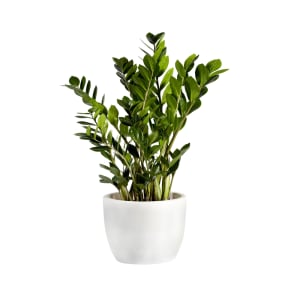Plants only grow well if they are placed correctly. There is a rule of thumb for this: the darker the leaf, the less light the plant needs. Variegated species appreciate a very bright location.
Avoid direct sunlight, however, as it causes the leaves to dry out too quickly and bleaches them.
By the way, most foliage plants tolerate water shortages better than stagnant water. In addition, they appreciate regular fertilization from spring to September.
This gives them strength and vitality and makes them grow better. Foliage plants, on the other hand, do not tolerate cold and draft.
Foliage plants
They're hip. There are many scientific reasons for that. But actually, they're just cool, and healthy, and anything but boring. Here's a little hit parade.

Important rules for foliage plants
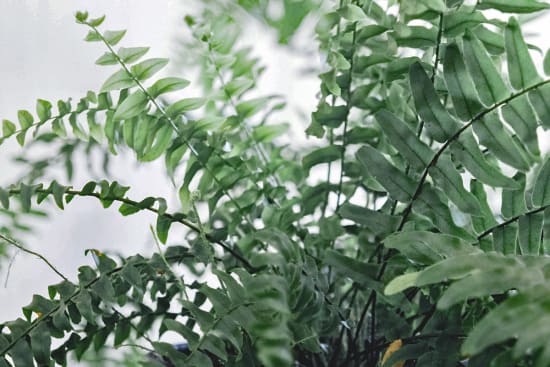
Tip: clean the leaves regularly. Dirty leaves reduce the absorption of light, which has a negative effect on growth.
Some foliage plants (e.g. indoor ferns, ivy, benjamin figs) appreciate relatively high humidity and should therefore be regularly sprayed with lime-free water, especially in winter.
Attention: plants with soft or hairy leaves, very dense foliage or leaf rosettes should not be sprayed. They tend to rot.
Attention: plants with soft or hairy leaves, very dense foliage or leaf rosettes should not be sprayed. They tend to rot.
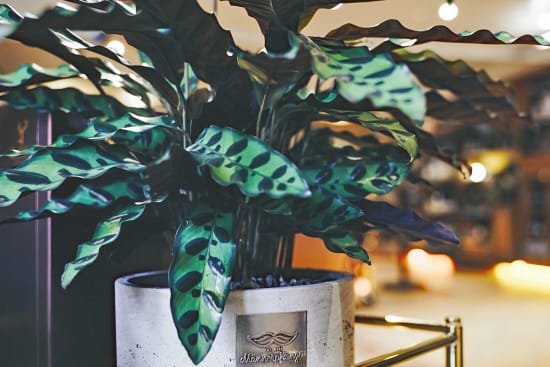
Foliage plants are true allrounder
Plants do not only look pretty. They also create visual comfort and are good for us.
Studies have also shown the positive effect of foliage plants on health and well-being.
They stimulate concentration and creativity, increase performance, reduce noise levels and provide mental balance.

Last but not least, NASA researchers have proven that they can even filter harmful substances from the air.
These are absorbed through the leaves and either processed there or transported further into the rhizomes, where they serve as food for the root microbes living there. In this way harmful substances such as benzene, methane and formaldehyde are partially rendered harmless.
Of course, only healthy plants can do their job properly. It is therefore important to meet their needs in the best possible way.
Of course, only healthy plants can do their job properly. It is therefore important to meet their needs in the best possible way.
High-level foliage plants
One thing unites us today: lack of time. No wonder, then, that easy-care plants are on the rise. Here we will tell you which plants have cult potential:

Fiddle-leaf (Ficus lyrata): with its large, imposing leaves it's a real eye-catcher
You will find it among our plants for men. There it is called "Frankie."
You will find it among our plants for men. There it is called "Frankie."

ZZ plant (Zamioculcas zamiifolia): it is one of the few plants that also beautifies shady rooms.
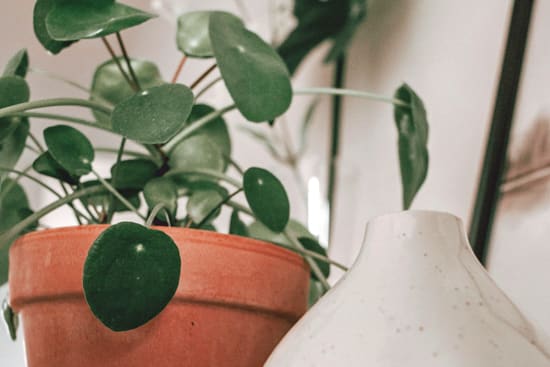
UFO Plant (Pilea peperomioides): with leaves that look like small flying discs, this plant looks really chic and can be found in social media on almost every interior design image.

Peacock plant (Calathea): with extravagant leaves in different shades of green, brown, red and silver, which move up at nighttime and lower in the daytime. If you listen carefully, you can even hear a rustling sound.
You will find the Calathea among our plants for men. There it is called "Mike."
You will find the Calathea among our plants for men. There it is called "Mike."
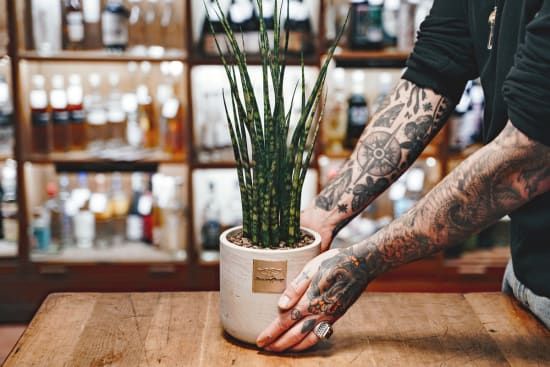
Mother-in-Law’s Tongue (Sansevieria): ): it has fallen into oblivion for a long time, but today it is a fashionable plant because it also fits into very modern living environments.
You will find it among our plants for men. There it is called "William."
You will find it among our plants for men. There it is called "William."
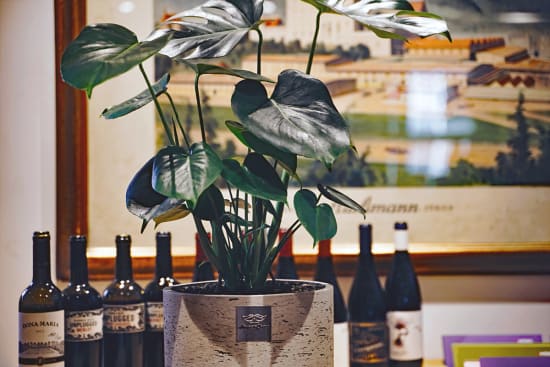
Swiss Cheese Plant (Monstera): with its large heart-shaped leaves it is the trend plant par excellence. Everything about this tropical plant seems oversized.
Not only its leaves with large perforations (see name Swiss Cheese Plant), but also its general appearance. It takes up quite a lot of space, but is a real eye-catcher.
Would you like to get to know the Monstera? You will find it among our plants for men. There it is called "James."
Would you like to get to know the Monstera? You will find it among our plants for men. There it is called "James."
Of course, there are other plants that are easy to care for. So, if you don't find anything above, it's best to get advice from a specialist shop.
More exciting topics on flowers & plants
Dahlias
Varied, colorful and simply wonderful: dahlias are an ode to summer and autumn and a symbol of happiness, health and love.
Chrysanthemums
A favourite flower of the Japanese emperor, chrysanthemum has conquered the whole world. Today, the flower with poetic names has countless fans.
Poinsettias
Did you know that poinsettias speak Spanish, that there is a Poinsettia Day and that you have the choice between an unbelievable number of colors and shapes? Find out more.
Christmas-roses
The Christmas roses available from Advent are touchingly lovely. They beautify the outside area despite frost and snow and bloom the whole winter.
Amaryllis
Amaryllis? The Advent flower, popular for its spectacular variety of colours, actually has a different name. But you know why it's a compliment when you get one?
Succulente & cacti
Because they are able to store water, they are particularly easy to care for. But they can also be extravagant, fragrant, flowering and inspire with exotic shapes.
Foliage plants
They're hip. There are many scientific reasons for that. But actually, they're just cool, and healthy, and anything but boring. Here's a little hit parade.




